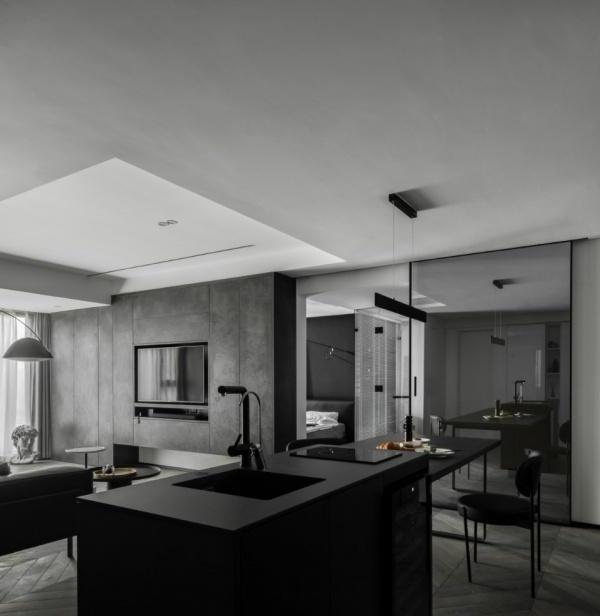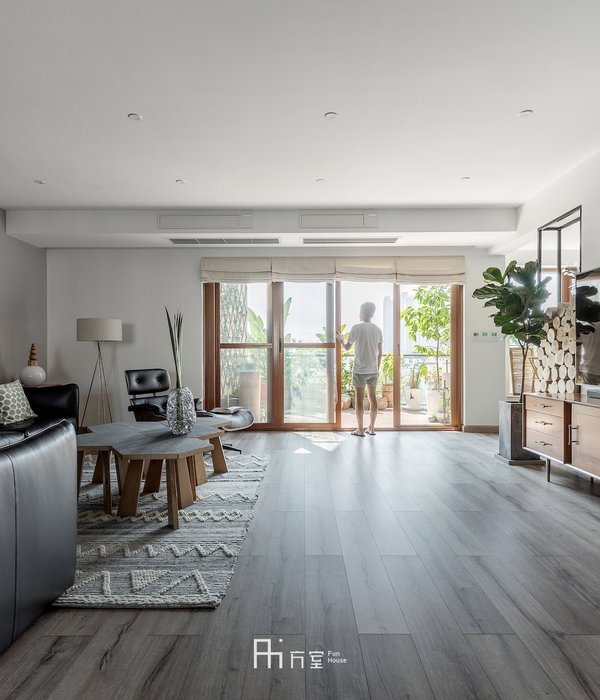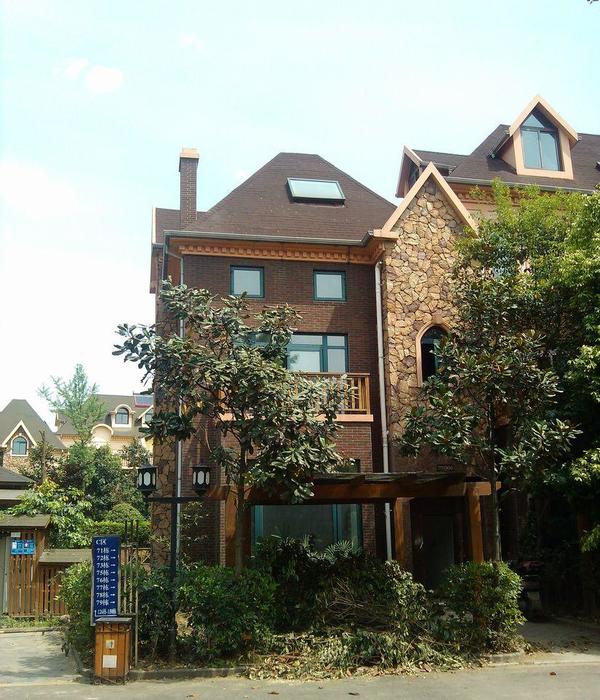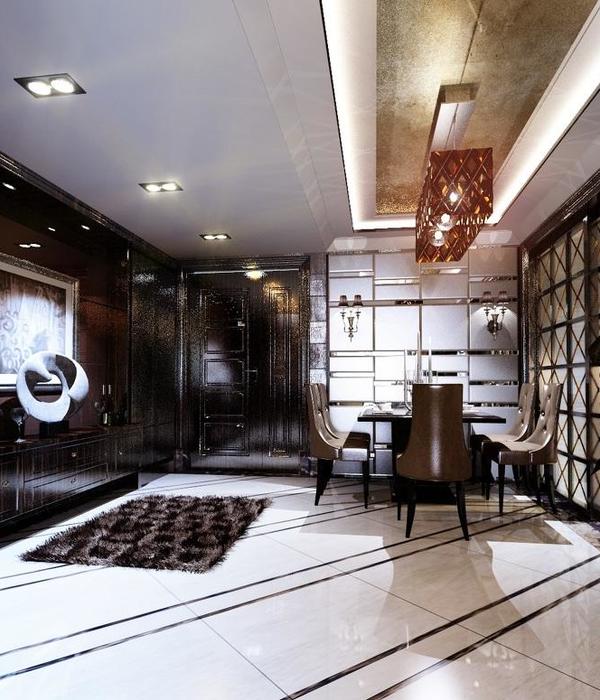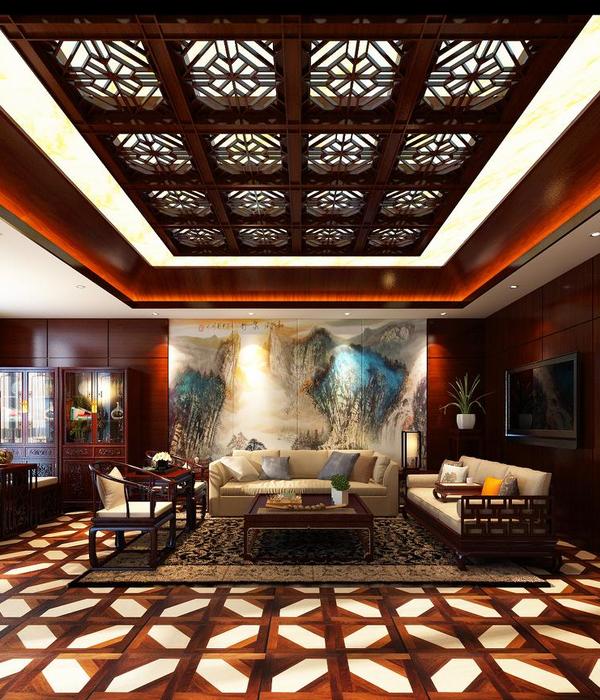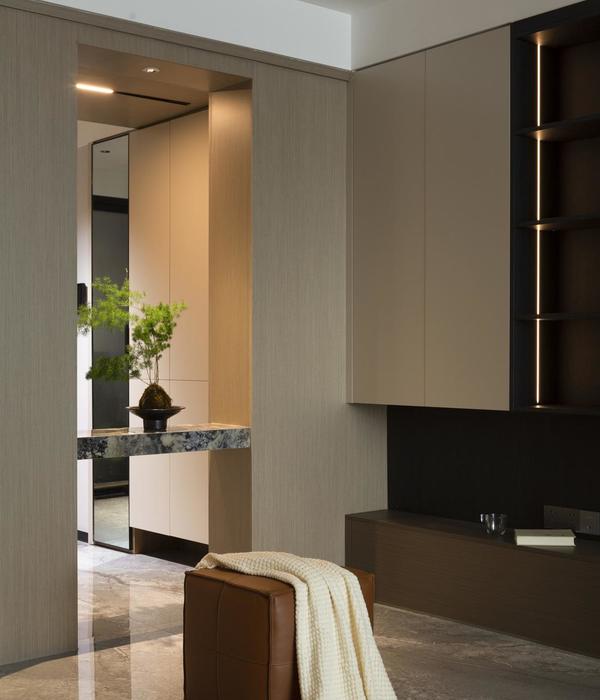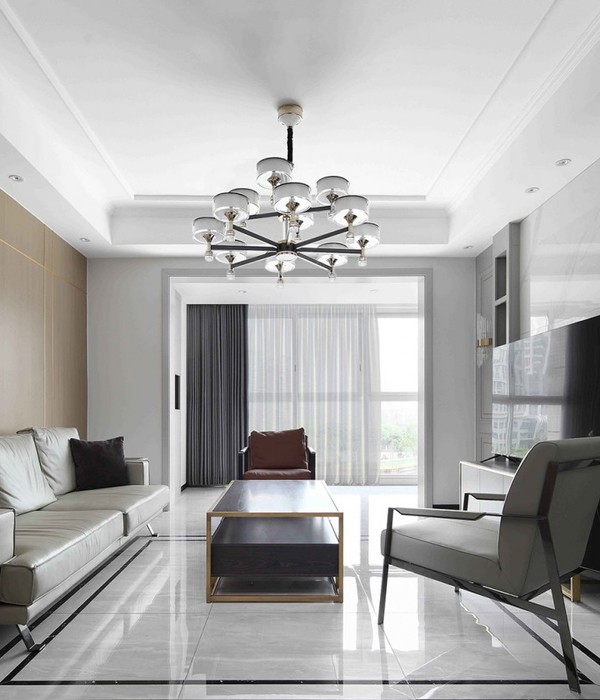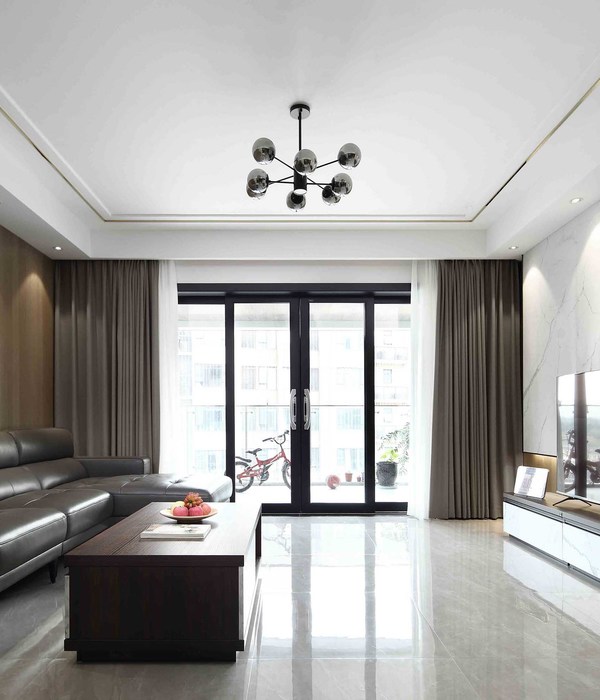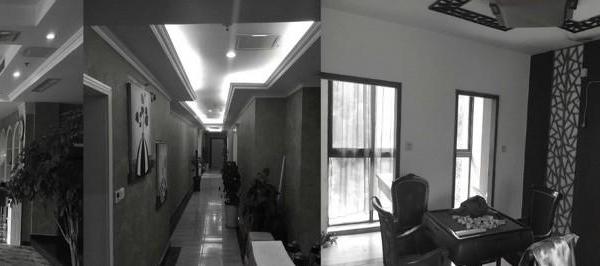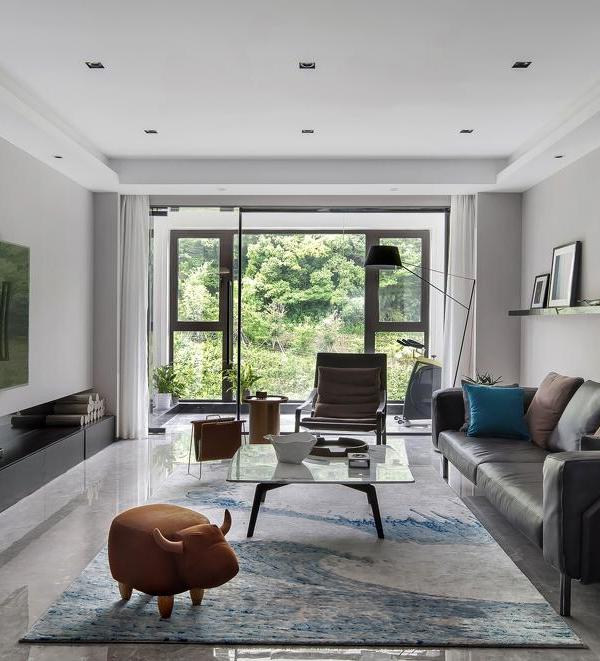SHoP建筑事务所
111号西57街超高项目
张旭
SHoP Architects111 West 57th StreetXu Zhang出品人:向玲|Producer:XiangLing编辑:陈诺嘉,武晨曦,徐馨羽,历剑|Editor:ChenNuoJia,WuChenXi,XuXinYu,LiJian
1.客户和设计团队对这栋超高大楼有着怎样的寄托?请谈谈项目从计划到落成的背后故事。
Please share with us the story behind the project and talk about what the client and design team respectively expect from this high-rise building.
如我们合伙人GreggPasquarelli在去年年底项目封顶时的致辞:“西57街111号是座有着非凡比例的,被誉为世界上最苗条的大楼。它规模宏伟,1428英尺(435米)的身躯优雅地站在珍贵历史保护建筑施坦威大楼一旁,与其完美的融合,体现着项目本身对纽约历史与文脉传承的尊重。这个项目带给我们团队前所未有的挑战,将我们过去对摩天大楼或纽约市开发项目的先入为主的观念打破。作为纽约本土建筑事务所,我们非常自豪能为纽约又添加了一个全新的地标建筑”。111号,是我们与JDS结合先前建立的合作伙伴关系下,运用当下先进的建筑技术,结合城市最新发展的政策,携手实现了这一让人惊叹的项目。项目的设计,融资,建设共历经6年,我们始终保持最高水准的团队合作,共同缔造了这一建筑奇迹。当项目最终完成的那一天,我们回首看去,会为这个宏伟的建筑梦的实现而欣慰。整个项目的设计不仅来自团队,也来自客户,更来自这个城市独特的文化气氛。项目的设计与开发,就像在一个熔炉,当每个个体无与伦比的智慧和力量汇聚在一起时,新事物就自然的诞生了。JDS的首席执行官及创始人MichaelStern去年对我们团队说过:“没有人会相信这个楼是真实的,就算它真的被盖出来的那一天”,得到客户这样的赞许,就是对我们建筑事务所或整个团队的最大嘉奖。项目本身也成为了新的建筑设计典范,让大家重新正视建筑的真谛,任何一个成功的项目都应与项目所在地各个方面紧密的融合在一起。(下文西57街111号将简称为“111号”。)
111号于2019年11月正式封顶
坐落在中央公园中轴线上,拥有非凡比例
111 West 57th Street, Topped out in 11/2019
sitting right on the central axis of the Central Park
with extraordinary proportions©Evan Joseph
2.这栋如此“细长”的超高层建筑会对周围环境和其他建筑产生怎样的影响?项目从规划到实施都面对了哪些挑战?
How will such a “slender” high-rise influence its surrounding environment and the existing buildings? What were the challenges that the project had to face from its planning to its conducting?
在纽约这个繁杂的大都市中,项目本身能够坐落在中央公园附近,特别是位于中央公园中轴线的正南端,对于客户和建筑设计师来说都是一件可遇不可求的事情。但是由于项目紧邻施坦威大楼这一历史保护建筑,因此,新的超高塔楼不论在设计及施工都面临了极大的挑战。
Within Manhattan, having a project close to the Central Park already could be considered as a dream project for most of the architect firms. It is even rare to have a project like 111 W57th St, which is located right next to the southern edge of Central Park while also happens to be on the central axis of Central Park. In addition, the conversion of the historical landmark – Steinway Building, combining all of these unique features which for sure the supertall will face many challenges both in design and construction.
▼左图:历史保护建筑施坦威大楼(1925年建成)Left image: Landmark Steinway Building (built in 1925)右图:针对历史保护建筑的设计概念图Right image: Concept diagram to recess the tower in respecting the landmark building ©Huge Ferriss
首先是建筑的体量。项目初期,设计团队如果本着最大化的利用率来进行整体的设计,塔楼的体量将更宽,以获得更多的开发利用面积。但是考虑到施坦威大楼临街的视觉,以及超高塔楼的阴影投射到中央公园的影响,设计师将新楼体立面从临街向后推移,同时最大化地使建筑体量细长,以减少对环境的影响。这样的楼体尺度处理也最大化地保留了项目南端居民和游客对中央公园的视野,特别是从帝国大厦和洛克菲勒大厦楼顶的观景平台,显示出对这些老牌地标建筑的敬意。同时,111号的设计将楼的宽高比提高至以前建筑领域不可能达到的水平。但如公司的合伙人Dana Getman所说: “我们并不是去创造一个新的属于纽约的建筑类别,这个项目本身只是对纽约经典时代下的摩天大楼的一个回归。这也正是这一项目出彩之处”。 “战前建筑,在空调还没有被研发时,为了能让室内能有更好的光线和空气,建筑的体量往往都很窄。而111号做为一个住宅项目,因此光线和空气又一次成为设计中需重点解决的问题,使我们有机会去回顾历史经典建筑,并去了解这些建筑的特殊之处进而运用到我们的项目中。”
超高建筑是源于历史经典建筑体量上的革命,The evolution of NYC supertalls evolved from the classical tower’s volumetric aspect ©SHoP Architects
仿若看到建筑材料的历史延伸,初始设计时立面材料即选定以赤陶为主,这一极具纽约特色的材料(问题4,7会做更多介绍),的确很好地继承了纽约建筑设计的传统。
Moving away from the volumetric aspect of the project, when people walking along the 57th street toward either East or West direction, looking at the tower’s facade design of 111 West 57th St along with the neighbor buildings, you could really have a feeling that the new tower fits the neighborhood perfectly, and creates a harmonious street view. The supertall’s East and West elevations somehow create an “illusion” which seems like the traditional building materials from the neighboring buildings just seamlessly raising in the vertical direction. This kind of effect is inseparable from the building material selection: terra-cotta and bronze.
▼左图:经典材料的垂直延伸,Left:The vertical connection of traditional materials ©Tectonicphoto
右图:高塔部分的后退保留了人们对历史保护建筑视线,Right:The landmark view from the street was preservedby pushing the tower back from the street ©Field Condition
而项目南,北两面则以玻璃及铜合金为主,旨在保留公寓内部对南北两个方向的视野及光线。细长的楼体使得111号必须要运用大量的钢筋混凝土剪力墙来保证结构稳定性,利用建筑的东,西两面与周边建筑共享的地段线(lot line), 正好安排大面积剪力墙。在保持建筑结构性的前提下,设计了细长分布的玻璃窗,为公寓内的卫生间或衣橱提供了良好的视野及光线。
On the North and South facade, the primary materials transit to glass and bronze in order to provide the maximum views and sunlight into the units. The slenderness of the building was only possible because of the intensive use of shear wall structure and the deep foundations. Due to the East and West facades are adjacent to the shared lot line, which becomes the perfect location for the design team to arrange the primary portion of shear wall to the East and West facade. In addition, regarding the unit layout, the design team strategically located the elevator core, bathrooms and walk-in closets next to the main shear wall to maximize the unit layout while providing the only necessary windows to provide daylight and view while maintaining the structural need.
▼分析图: 剪力墙以及其他结构,Diagram: Shear wall and other related structural elements ©SHoP Architects
项目的结构以及房间布局以保留南北主要景观以及光线为主,The structure and room layout maintains the primary view towards the Central Park and city while preserving the sunlight exposure from the South ©SHoP Architects
▼项目北面的中央公园成为了公寓起居室的自然“背景墙”,The Central Park is the natural “backdrop” for the great room for each unit.
而南面卧室则让人们可以与城市重新连接在一起,The city view from the bedrooms reconnect the unit owners with the city ©JDS Development Group
3.大楼的独特之处体现在哪里?
How could 111 West 57 St stand out from the high-rise clusters in New York and even in the world?
现在的建筑,尤其是摩天大楼和超高大楼,千篇一律的玻璃“盒子”仿佛成了唯一的设计准则。建筑已经逐渐脱离了项目所在地独特的人文及地理环境,就像我们的合伙人Chris Sharples曾说过,“111号最核心的设计概念就是如何真正设计一个纽约独有的建筑?我们并不想设计一个可以被安放到世界任何一个角落的建筑”,进而成为“世界建筑”中的一员。随意一瞥可能不会觉得它们很突兀,但仔细品味就会感觉不接“地气”,缺失了独一无二的归属感以及和项目所在地的连接。
Nowadays, within the high-rise and supertall categories, the ones attract the public attention somehow all seem following the “glass box-like” unspoken rule for the design aspect. Within this group of buildings, the majorities could be easily located in any other major city around the globe. Such buildings do not have the strong physical and cultural connections which only associate with the project’s unique surrounding settings, and somehow this group of architecture could be considered as the “world architecture”. If you only glimpse these buildings online, you might not find the awkwardness they present but you might have a feeling that the buildings seem like just being dropped to the location without any real consideration. They lack a unique sense of belonging and a true connection to the project location. Like our partner Chris Sharples once said: “The idea here was, how could we design a truly New York skyscraper? Not just something that you could take from Beijing or Shanghai or Dubai and plant here.”▼111号超高的独特设计,完美的与周为传统建筑融合在一起
The unique design of 111 West 57th Street enables the project to be perfectly anchored with surroundings ©SHoP Architects
111号,作为纽约建筑新篇章中的第一批超高建筑之一,独特的地理位置已经使其成为最瞩目的新地标。众所周知,纽约最传统地标建筑中,如:新哥特风格的伍尔沃思大楼 (Woolworth Building, SHoP建筑事务所所在地)、装饰艺术风格的帝国大厦、克莱斯勒大厦,都运用了赤陶和金属材料作为项目外立面的主要建筑材料,使这些材料演变为纽约建筑最传统的材料。但随着新型建筑材料的开发与完善,传统的材料逐渐被玻璃铝合金立面材料所取代,使得当下的大楼显得千篇一律。
111 W57th St, as one of the very first supertalls within the new architecture chapter for New York, previously mentioned unique project location has already made our project stand out from the rest, and becomes the most special landmark building. Among the most well-known landmarks in New York City, either the Neo-Gothic style Woolworth Building (where SHoP Architects located), or the Art Deco Empire State Building, and the Chrysler Building, terracotta and metal have been used as the main building facade materials. Eventually, such materials have gradually become the most signature materials for New York architecture. However, with the advancement of material science and technology, this batch of traditional materials has been gradually replaced by the aforementioned glass aluminum alloy curtain wall system, which forged a uniform appearance for the new high-rise buildings.
▼与右图的伍尔沃思大楼的传统赤陶相比,111号的赤陶在新时代创新下使其重获新生,Compare with Woolworth building on the right, the creativity and technologymakes the terracotta for 111 West 57th Street to rejuvenate ©Ellen Oh (right)
当建筑在2019年底封顶时,111号已经成为了很多人心中最喜欢的建筑之一。感谢SHoP和JDS敢于挑战建筑极限的精神,为纽约的天际线新增浓墨重彩的一笔。也正是这种追求卓越永恒的精神,使我们团队在当下的建筑设计届脱颖而出。
Left:Looking up from Steinway’s terrace, you could witness the connection for the similar architectural elements between the old & new buildings©SHoP Architects
Right:By referencing back the classical landmarks’ design, 111 West 57Th St enables the classical and new terracotta to have a conversation within the same era.©Field Condition
▼纽约市民熟悉的材料组合就因111号,重新回到了人们的视野,The material combination that used to be familiar to the New Yorkers has been brought back to the stage again by 111 West 57th Street ©SHoP Architects
4.建筑拥有羽毛般的形态,这样设计的目的是什么?
Why do you choose to design the building in a feathered profile?
纽约的城市规划设计规范早在1916年开始,跟同级别的其他大都市对比,就已经凸显出它对城市整体规划的深远积极的影响。在这片钢筋混凝土丛林中,作为最重要的中高层建筑设计准则,天空曝光的平面被强制性的要求楼梯沿竖向高度进行阶梯式的退缩。以最大程度地保证了阳光照射到街道的时间以及行人或居民对天空的视野,同时也减少行人和车辆在高楼林立的城市中穿梭时的压迫感。因此纽约大部分的高楼设计都有这样的阶梯式的退缩。
New York’s zoning resolution began as early as 1916, compared with other cities of the same level, it has already shown its far-reaching and positive impact on the city’s overall planning. Within this concrete jungle, the sky exposure plane is the most important design criterion for middle and high-rise buildings. It is mandatory for the building to continuously recess in a stepwise manner during the vertical rise. This approach ensures the sunlight could have the longest and greatest amount of sunlight reach the street level during the day. On the other hand, maintaining the amount of view of the sky also reduces the sense of pressure when pedestrians and vehicles are traveling among the concrete jungle. Most of the high-rise designs all have such stepped setbacks associated with the location and height of the project.
▼分析图: 强制退缩与羽毛般的退缩的不同,Diagram: the comparison between regular setback and feathered setback ©SHoP Architects
111号则采取了独特的羽毛形态的退缩。对比普通的强制退缩,这一处理使得超高建筑的巨大体量被软化,让楼体造型更圆滑、更有延续性和伸展性。每一个羽毛般的建筑退缩都由赤陶板块和弯曲的金属构建,减少了建筑退缩时产生的间隔,使建筑的南外立面仿佛逐渐向上攀升一般。运用这种精妙的连接,使得建筑棱角被细化,让人们更加亲近去适应111号独特的体量。
The feathered profile is one of the unique characters for 111 W57th Street. This profile, if compared with the traditional setback that you have seen on other high-rise projects, greatly softens the massive volume of the tower design, ensures a smoother continuation and transition of the overall shape. Each feathered setback is accompanied by an anchor pile that consists of terracotta plates and curved bronze filigree. The anchor piles greatly reduce the sense of gap where the extra spaces generated from each setback. The use of these subtle connections between architectural elements enables the building edges and corners to have a human-scale, letting people easily perceive and relate themself with the project’s unique volume.
▼左图近看的退缩处细节构造, 以及右图远看整体间的协调性,Closed-up details on the left, and the overall balance between different modules ©SHoP Architects (left), Evan Joseph (right)
▼羽毛般的建筑退缩
由赤陶板块和弯曲的金属构建,减少了建筑退缩时产生的间隔
Feathered setback
Each feathered setback is accompanied by an anchor pile
that consists of terracotta plates and curved bronze filigree ©Field Condition
5.请详细介绍一下立面的材料选择以及设计中所面临的挑战。
How did you choose the facade material and what challenges did you face during the design?
作为目前全世界最细的楼 (1:24的宽高比),除了坚固的地基外,结构上需要大量应用高强度的钢筋混凝土剪力墙和质量阻尼器来提供所必须的稳定性。前文提到的,建筑的东,西两面布置了大面积剪力墙以及细长分布的玻璃窗,由于大面积的实体墙结构使得我们需要选用一种材料来进行大面积的覆盖。秉着选用最具有纽约特色的建筑材料,赤陶自然而然的成为了最佳的选择。
As the slenderest building in the world (with a width-to-height ratio about 1:24), on the structural portion, the project is only possible is because of the deep foundation, the high-strength reinforced concrete shear walls, and mass dampers work together perfectly to provide the stability of the structure. As mentioned earlier, the large-area of shear walls on the Ease and West facade with the slender windows create two massive “solid” walls, which requires the design team to come up with a material selection to cover the bone of the structure. As we were looking into the most classical New York building material, terracotta has naturally become the best choice.
▼为了避免赤陶外观的单一性,设计团队又通过参数化设计,使其东,西立面呈现出大的纹路设计,The overall moiré waving profile was designed in grasshopper to achieve by arranging the differently extruded terracotta profiles strategically to composite the effect ©SHoP Architects
不同于传统的赤陶一块块的用水泥镶嵌在外墙上的安装方式,111号的赤陶以多个单体为组固定在垂直的铝合金模组上 ,进而悬挂在剪力墙外,在方便了安装的同时也起到了Rainscreen的作用。同时3D的镂空挤压赤陶,也增加了项目整体的设计美感。项目共有约4.3万块单独的赤陶单体,23种不同的立体造型组合。同时,为了避免赤陶外观的单一性,设计团队又通过参数化设计,使其东,西立面呈现出大的纹路设计。赤陶本身也按参数设计顺序的变化块进行建模,挤压,上釉,然后堆叠成一个复杂的图案,就像一个轻微的湖面的波纹,总体上既新颖又熟悉。在立面上交错使用这些元素会产生一种独特的莫尔条纹,在不同的灯光或不同的角度进行观看时,它会发生巨大的光影及3D视觉感官的变化。莫尔条纹的立面变化也与羽毛般的建筑退缩相呼应,从项目的南端向着北端成水波纹状徐徐上升,延伸到超高的建筑顶端。每层楼由22-28个(随高度递减)赤陶垂直模组构成,而每个垂直模组又由7组不同造型的赤陶垂直叠加,使垂直模组的高度与项目层高相同。这样的设计方式简化了外立面幕墙的生产及安装过程,工人们可以更高效率地完成,缩短了项目施工时长。维护方面,在项目的最高处,配有大楼维护装置来提供玻璃,赤陶的清洗及维护。
▼23个不同的立体造型组合(左), 以及不同造型在外立面上营造出的别样的美,23 terracotta’s 3D profiles (left) together form a unique beauty for the facade ©SHoP Architects
示意图: 平面图上23个不同造型组合在一起,Diagram: 23 unique profiles in plan view ©SHoP Architects
▼赤陶进步细节,Detail shot for terracotta ©JDS Development Group
6. 如何平衡简洁的建筑形体与装饰性?
How were the decorative elements integrated to the monolithic form of the tower?
如前所述,111号东, 西两面墙上装饰了23个独特的赤陶垂直模组,远远看去犹如光影的变换。而在玻璃上添加的铜合金构件,与赤陶垂直模组互相错开,却是只有从近处才能观察到的细节装饰。这两种组合,重新将装饰艺术风格带回到人们的视野。合伙人们曾说过,在设计阶段,团队花了大量的时间和精力去寻找不同材料间的平衡,使整个超高建筑不过于生硬。不论是3D的赤陶垂直模组还是青铜构建,弯曲的弧度犹如曾经回响在施坦威大楼钢琴曲中的音符,细腻地将 “生硬的”建筑材料连接在一起。
Looking at the east and west facades, you will see a “live show” of the light and shadow casting on the terracottas and filigrees, which responses to the directions of the sunlight and the weather condition. Sometimes you could see the most extruded terracotta pieces reflecting the sunlight at the right moment, which like the sparkings in the golden water. On the other hand, during cloudy days, the terracotta pieces with shallowest extruded profiles become the main element that draws all your attention towards the darkest spots, presenting a subtle beauty. The bronze filigree (unfinished) in-between the terracotta modules adds another layer of aesthetic and complexity to the project when you observe the project from a close distance. The curved profile is like the notes within the music script, delicately connecting different elements together and soften the rigidity the facades presented.
▼如不断重复变化的音符一般,所有不断叠加的赤陶板块和铜合金构件共同完成了这一个建筑的乐曲,Like great music, relies on repetition and variation of notes, the pillings of terracottas and filigrees jointly create this masterpiece ©SHoP Architects (left), Opus 53 for piano by Frédéric Chopin in 1842 (right)
同时,各种材料的用量及分布也很讲究, 它们不争不抢,和谐地融为一体,也是设计中反复考量的结果。当时SHoP与JDS共同决定选用没有防氧化的铜合金,呈现自然铜质,让它随着时间跟着建筑一起变老,从金铜色慢慢变成最终的绿铜色,承载着建筑特殊的历史。这是以玻璃为主的“世界建筑”所或缺的。
After trying various design options, the amount and distribution of the various materials are also at a very particular ratio. They do not fight over each other while being harmoniously integrated into one unity. During the design phase, SHoP and JDS collectively decided to choose a copper alloy without oxidation resistance, allowing the copper to age with the building over time, gradually changing from gold copper to the final dark black color. Such a unique aesthetic our project’s facades presented, perfectly link the new addition with the music value Steinway portion had. Like the script of music, constantly progressing with the flow of time, and you could only get a complete sense and feeling of the music until the very end of the script. This is something you are not able to see within the “world architecture” style buildings mentioned earlier.
▼刚刚装上铜合金构件(左图)与已经开始老化的铜合金构件的对比.,The comparison between newy installed and aged bronze filigrees ©SHoP Architects (left), Field Condition (right)
▼新老地标在夕阳下交相呼应
The new & classical landmarks under sunset ©JDS Development Group
由于项目地处纽约最繁华的街段,施工中项目材料的运送、储藏以及安装都面临了很多挑战。但是,JDS施工团队凭借着缜密的安排和高效的运筹使得项目的进展十分顺利,项目工地管理得井井有条。现场施工只能在大约17×24米(56×80英尺)的场地上进行,为此JDS团队需要精细地安排不同承包商施工或运送材料的时间,仅这一项能在纽约繁华的区域实现就是很难的事情了。
项目东西幕墙的安装也是极其困难的。由于东西墙体主要是混凝土剪力墙,不同于一般幕墙的立柱式开放结构,所有的幕墙板只能从南北两侧移出,之后用项目特有的幕墙悬挂系统将幕墙板悬空移动到最终所在地,再由工人在剪力墙体外实施安装。整个过程都需要高精度地配合,才能最大化地减少安装过程中可能出现的问题。
在项目塔顶处,有800吨的质量阻尼器。仅零部件的运送,就用了16-20批大货车运到工地,再由起重机分58批垂直运送到88层, 369米(1211英尺)的高空。同时施工场地非常狭窄局促,增加了安装的难度。为此项目团队在承包商的工厂进行了一次安装预演,使得最终安装顺利完成。
What problems should be overcome during the construction?What is the engineering and technical challenge of the project?
▼左图:施工人员在将立面板块从北部移出楼体,Left: Moving out the facade module from the opening near the North ©JDS Development Group
右图:项目独有的双层安装悬挂装置,Right: double deck facade installing platform specifically designed for our project ©SHoP Architects
Due to the project being located in the busiest area in New York City while with only limited space in the job site, the construction team has to keep the construction field as clean as possible to ensure the workers have enough space to perform all their works. Where to store the construction materials, how to arrange transportation to perfectly align with the extremely tight construction schedule becomes really challenging. On-site construction activities can only be performed on a site of approximately 17×24 meters (56×80 feet). On top of that, with the height of the tower, JDS Development Group also needs to pinpoint the lift/hoist schedule with all the construction activities as well. With JDS construction team’s specialized expertise and meticulous organization skills have enabled them to conquer all these most difficult challenges with ease.
For our project, while the massive shearwalls provide the required structural requirements but at the same time, it also creates unique challenges for the construction team to install the modules on the East and West facade. Unlike other traditional column grid highrise / supertall buildings with huge open space to install the curtain wall system from inside, our project could only install the facade modules from the outside for the Ease / West facades. The project team needs to use a very project-specific curtain wall installation system to provide a suspended platform for the workers to stand outside of the shearwall to perform all the installations. First, the team will connect the modules with the cables tie into the system then pull the modules out of the building from the North / South openings. Then the team will need to horizontally shift the panels within the very narrow space we have in-between the platform and shearwall. It’s an extremely challenging and high-precision process at the height where the works are performed, the overall process involves many changes of hands to get the panel to the final coordinated location.
Near the top of the project, we have a tuned mass damper which weighed 800 tons (equals to three times of the Statue of Liberty) and located within a triple-height space. Due to the massive size and number of parts involved in the complicated installation process, the project team performed a test run to install the whole equipment in the remote factory to ensure everything works perfectly. The overall weight is being added up by numerous individual thick solid steel panels, and it took 12-20 batches of large trucks to deliver all the pieces. Then the construction crane carried one panel at a time to pull them up to the final location which is 1,200 ft in the air.
▼塔顶的钢结构的安装
Tower top steel structure under installation ©Evan Joseph
8.请介绍一下主楼体功能空间的分布。
Please briefly introduce some other programmes of the main building.
项目总共有91层,外加楼顶的钢塔(57米高), 3个透风层分别安排在项目的51, 71和86层, 以均匀地减小超高楼体的风荷载。同时项目还设计了一个重达800吨、3层楼高的调谐质量阻尼器,它坐落在项目的88层,以减小由风导致的建筑的振动。另外在项目的最高处,还配有大楼维护装置来提供玻璃清洗或项目建筑配件的更换工作。
▼111号超高顶部分解示意图
Tower top exploded axon diagram for 111 W57th St ©SHoP Architects
项目内住宅部分分为平层与复式公寓两种,在1楼及10楼配有公共服务设施,比如泳池,桑拿房,健身房,酒吧,厨房,及户外楼台。在地下1到4楼设置有商业及零售楼层, 而相邻57街一楼的商业楼层,同时配备了一个有7层楼高的中庭。机械室则分散在整个项目中,主要集中在地下2楼,2, 9, 10, 18,19,20,40,41,63,64,以及84,85楼。同时项目也为业主提供了施坦威楼体内的落客区域(Porte Cochere)以方便业主的出行及生活。
Each unit typically occupies an entire floor, except for duplex units we have for this project. On level 1 and level 10, we also provide amenity space for the unit owners to use, such as swimming pool, sauna rooms, gym, bar, kitchen and outdoor terraces, etc. From Cellar to Level 4, the project also accommodates some retail and commercial space. Facing 57th street, the retail space on the floor has an enormous atrium which has a 7-floor tall ceiling. The mechanical levels are spread within the building, and mainly located on Sub-cellar, Level 2, 9, 10, 18, 20, 40, 41, 63, 64, 84 and 85. In addition, on 58th Street within the Steinway portion, we have also designed a Porte Cochere area to provide the convenience for owners to be picked up or dropped off.
▼高塔部分典型户型平面图,Typical tower unit plan ©SHoP Architects
▼111号的落客区域,Porte Cochere area for 111 West 57th St
▼111号的室内泳池,Interior pool for 111 West 57th St
▼左图:111号58街的入口,Left: Entrance from 58th Street
右图:位于10楼的住户楼台,Right: Terrace on Floor 10 for the residents
▼位于10楼的住户楼台,Terrace on Floor 10 for the residents
9. 作为项目的AOR,如何与JDS保持默契合作?与传统的客户-设计师关系有何不同?
What makes SHoP a highly trusted partner to JDS? How was your collaboration distinguished from the conventional ones between architects and clients?
111号是SHoP与JDS的第二个合作的项目(美国铜大厦为第一个项目,2017年完工),双方在此前的合作中已经培养了出色的团队合作精神。能够建立这样紧密的关系得益于SHoP建筑事务所长期以来追求的设计理论密不可分。从1996年成立初期以来,SHoP就塑造了一个非常规的设计理念。公司设计理念的核心是敢于质疑和挑战公认的建筑实践模式,并有勇气在必要时超越传统建筑师的职责并进行相应的扩展。这种开放式的思考模式使我们能够有效地解决设计中的各种问题:从新颖的项目功能设计概念,到下一代的制造和项目交付方式,再到极致的空间设计恰如其分的满足所需的功能。多年前,我们已经证明了我们是可以在现实世界的种种限制下,塑造出具有启发性的建筑作品。
111 W57th Street is the second project between the collaboration of SHoP and JDS (American Copper Building is the first project between SHoP Architects and JDS Development Group). Before kicking off the project, we have already cultivated great teamwork chemistry from the previous collaboration for the American Copper Building. Such a close relationship between the two offices is inseparable from SHoP Architects’ design theory. Since 1996, SHoP has modeled a new way forward with our unconventional approach to design. At the heart of the firm’s method is a willingness to question accepted patterns of practice, coupled with the courage to expand, where necessary, beyond the architect’s traditional roles. This open-minded process allows us to effectively address a broad range of issues in our designs: from novel programmatic concepts, to next-generation fabrication and delivery techniques, to beautifully crafted spaces that precisely suit their functions. Years ago we set out to prove that intelligent, evocative architecture can be made in the real world, with real world constraints.
这里HERE
回顾SHoP建筑事务所一些经典项目, 如Dunescape,Mitchell Park,Porter House以及后来的巴克莱竞技中心,不论项目尺度的大小,还是复杂的程度,公司都成功的完成了这些里程碑式的建筑项目。我们一直都在推进建筑施工的技术:在我们各个项目的操纵中,我们运用了大量的“零件套件”式的施工图纸 (例如 Dunescape和 Porter House),皆在生成一套独特的项目交付方式,而避免了传统的建筑“蓝图”。努力去消除想象力与实现项目之间不必要的障碍,进而简化创建一流建筑的过程。
Looking back at some noteworthy projects we did, Dunescape, Mitchell Park, Porter House and following by Barclays Center, our office has successfully delivered all these millstone projects with ease regardless of the size or complexity of the project. We have been advancing our approach to construction technology: deep in our practice, delivering these projects as a custom “kit of parts” (such as Dunescape and Porter House), aimed to produce a unique set of project documentation without traditional “blueprint” plans. Working to eliminate the unnecessary barriers between imagination and realization that have always complicated the process of creating great architecture.
▼为MOMA PS1 2000年设计的沙丘,运用非传统的零件套件图纸,Dunescape for MOMA PS1 in 2000, with Non-traditional kit of parts delivery ©David Joseph
另一方面,在巴克莱竞技中心项目中,随着建筑技术的先进发展,我们还一直不断的在开发不同的建模流程,来汇集所有需要的建筑信息使设计和交付流程更精简流畅。种种这些都消除对常规图纸的依赖性,使我们的设计师可以最大程度的去契合项目设计中运用的自动化生产的零部件。在保证最高设计水准的同时,SHoP追求高效易懂的施工图纸(或3D模型)交付,让客户和建筑承包公司能够轻易地理解并掌控施工过程中的每一个关键步骤。正是由于秉承这种设计理念,SHoP的建筑施工图纸总是会比其他公司的更加细化,从而减少了施工中由于信息不足而产生的RFI数量。高质量的施工图纸交付也使总承包公司更有信心竞标,为客户节约了大量的与建造相关的经费。
On the other hand, for our Barclays Center, with the advanced in-house technology development, we have also been developing different model-based processes that integrated all of the information necessary to streamline the design and delivery process. This technique can eliminate the need for conventional drawings, while aligning the imagination of our designers as closely as possible to the capabilities of the automated machinery used in component manufacturing. By keeping this kind of thought behind every project, SHoP’s project documentation is usually more innovative than any other architecture offices. While ensuring the highest design quality and standard, the pursuit of the most efficient and explicit construction drawings (or 3D models) delivery method to enable our clients and general contractors could easily pinpoint how each critical stage of the project will be executed. The number of RFI (most of the time due to insufficient drawing information) during the pre-construction and construction period has been greatly reduced. The quality of the final deliverables also enables the general contracting (G.C.) company to submit their bids which pinpoint the actual construction cost with confidence. Such a process greatly minimizes any potential construction-related financial issues that arose during the entire project lifespan.
这里HERE
同时,如果与传统的建筑实践方法相比,我们的事务所也在不断寻找其他项目内潜在合作机会,以便建筑师(或事务所)可以承担更多的项目责任(或风险),使我们可以更紧密与我们的客户合作。通过对Porter House项目的投资使得事务所和我们的客户达成共赢的状态,设计回报与项目最终的收益直接挂钩。进而双方团队在加深了信任的同时,让设计方案可以变得更加大胆,所有与设计关联的决策也可以更加流畅,多产。这次项目的经历启发了我们在其他项目中去重复运用共同投资模式,这样的合作不仅可以最大化的保护我们的设计方案,并可以确保客户形成最紧密的合作伙伴以及保证了他们在项目中的投资回报率,对于这样的项目何乐而不为。每个里程碑式项目成功后的故事,我们深信可以让人门对于SHoP的设计理念所信服,并且它们对纽约甚至美国建筑,地产行业产生了深度的影响,也常被人们津津乐道的谈起。
At the same time, if compared with the traditional way of architectural practice, our firm is constantly seeking any other potential opportunity so that architects (or the firm) can take on more project responsibilities (or risks), which enables us to work much more closely with our clients. For Porter House, with our investment tied to the outcome of the project, we discovered a beneficial shift in the client-architect relationship. Design could become bolder as decision-making became more fluid, trusting, and productive. This experience inspired us to repeat the co-investment model in other work—protecting our design intent and helping to ensure the financial success of those projects while forming a much closer business relationship with our clients. We believe our work presents a convincing argument that we are on the right track. These stories behind each project also had a huge impact on New York and even the American architecture industry.
▼2003年完工的Porter House
Porter House (completed in 2003)©Seong Kwon此项目是SHoP首次以建筑师和项目甲方投资合伙人的身份参与项目。Diagram展示了传统建筑师从业方式Porter House中SHoP事务所的不同。蝴蝶代表建筑师,可以看出右图中,SHoP在纵向上承担了更多的责任,也使得在横向轴上,获得了更多的项目回报.This is the first project SHoP Architects involved as the architect and the investor partners for a project at the same time. The diagram demonstrates the difference between traditional architectural practice and SHoP’s practice for Porter House. The butterfly represents the architect, and by looking at the horizontal axis, SHoP has been taking more responsibilities and involvements compare to the traditional practice (diagram on the left), which accompanies the increase of scopes as well. Such shift in the project team organization has also made SHoP get more rewards from the overall project process.
作为SHoP建筑事务所最紧密的客户之一,JDS是顶级房地产开发商中少有的能够自行承担开发项目建造的公司。对比传统建筑项目的3方(客户,建筑师,承包商)关系,JDS与SHoP的合作更加紧密,形成的项目团队能更有效地解决项目生命周期中会出现的问题。客户一般更喜欢与像SHoP这样不仅具有天马行空设计能力,并且可以让施工过程十分顺畅的建筑公司进行合作。同时,JDS及SHoP建筑团队内每一位成员都以超高的项目设计标准和独特性以及各个细节所展现出的永恒品质为傲。
As one of the closest clients of SHoP Architects, JDS Development Group is one of the very few top real estate developers in the world who have the ability to execute the construction portion of the project by themselves. Compared with the three-party (customer, architect, contractor) relationship of traditional construction projects, the cooperation between JDS and SHoP is a much closer project team that is far more efficient in solving all kinds of problems that occur during the project life cycle. As for our clients, JDS Development Group, who is seeking the most extraordinary design generally prefers to work with architecture firms such as SHoP Architects, who know how to best help and guide the client to achieve the remarkable design with the smoothest construction process. Also at the same time, each member of the JDS and SHoP team is very proud to be part of this project which redefines the standards for the high-rise building design, while achieving the eternal quality of every detail.
▼9 Dekalb AveSHoP事务建筑所与JDS房地产开发公司另一个施工中的超高项目Another supertall project between SHoP Architects and JDS Development Group under construction ©SHoP Architects
10.作为事务所第一个封顶的超高建筑,请介绍一下该项目的团队构成。 As the first completed skyscraper of SHoP, can you tell us about the structure of the project team?
负责项目的直接合伙人分别是Gregg Pasquarelli, Chris Sharples 以及 Dana Getman (近期被提升为事务所合伙人)。项目设计阶段在2013年秋季完成,施工开始于2014年初。我在2016年秋季从密西根大学研究生毕业后即加入了SHoP建筑事务所,随即正式参与到这个项目中。当时项目地基已经做好,正进行施坦威大楼内饰的拆除工作,同时主塔楼的钢筋混凝土剪力墙已浇筑至10楼左右。除了合伙人之外,在项目建设管理阶段,我们核心现场建筑师团队仅保持2-3人。随着项目接近尾声,目前团队只有项目经理Scot Teti和我。由于项目时间跨度大,现场建筑师处理的工作与项目历史息息相关,使得我们肩负着重大的责任。同时,也正是由于这样的精干的小规模团队分配,也让我们与客户之间沟通更方便与快捷。
整个项目中,建筑团队仅超强结构(superstructure)上就检阅了高达上千张施工图纸。检阅图纸的周期通常很紧,团队又要同时来检查承包商发过来相应楼层的机械系统,外立面构造图纸,以及各种各样相关的图纸,使得工作量及难度变得非常大。与此同时,建筑师的工作又相当于半个承包商,要确保不同团队部门的检阅都近乎完美,最终将设计图纸发回给承包商,这个过程中又涉及了大量反复的与其他团队的沟通。如果想最好的完成所有的工作,每个人都必须要有极强的沟通协作能力,以及能够快速的制定出工作优先等级并且十分高效的完成自己以及团队的工作量, 通常概括为软技能。合伙人以及项目经理十分信任团队中的每一个人所做的每一个关于项目决定,这种信任在其他的建筑事务所内是很难在短时间获得的,使得原本繁重的工作变得更有意义,也给年轻的建筑设计师更好的成长,学习,进步的空间。
除了建筑设计团队外,共同参与我们项目的团队还包括:Studio Sofield (室内设计事务所),WSP(结构设计事务所),JBB(机械设计事务所),L’Observator(灯光设计事务所),Buro Happo (外立面设计顾问)以及JHPA (保护建筑及维护顾问)等等,每个公司都是以最高效紧凑的人员团队协助我们这个项目,对于我们整个项目的大团队来说,大家更像是一个大家庭一般,给与彼此最专业的支持及信任。就像Michael说的那样:“这个项目的材料,强度以及独特的比例充分展现了JDS与SHoP之间的亲密无间的团队合作。我们突破了建筑和制造的界限,并在新旧并存的复杂性中找到了最佳的切入点”。
The direct partners in charge for this project includes: Gregg Pasquarelli, Chris Sharples and Dana Getman (recently been promoted to the partner level). The design phase of the project was completed in fall 2013, and the construction began in early 2014. I joined SHoP Architects in the fall of 2016 (graduated from University of Michigan in 2016) and began to work on this project from my very first day in the office. At that time, the foundation of the project has been poured already. The conversion of the Steinway’s interior portion and the construction of the new superstructure for the tower portion (around Level 10) was going on simultaneously. In addition to the partners, the project team for the construction administration phase has remained with 2-3 people. As the project comes closer to the final stage, the project team has been reduced with two people, our project director Scot Teti and me. Because the problems involved in a lot of work are closely related to the project history of the past few years, everyone in the project team has assumed a lot of responsibilities. Due to many of the construction issues the project team is dealing with, usually involved with lots of institutional memories of the project from the past, everyone in the project team has taken a lot of responsibilities in making sure the decision/solution is to the best of the project. At the same time, as the benefit of the small team organization, the communication between the design team and our client is way more rapid and efficient.
Within the project, we have reviewed thousands of shop drawings on superstructures alone. The timeframe we have for reviewing the drawings is very tight, and the team needs to check other trades’ shop drawings concurrently, such as mechanical, facade, interior finishes, etc. To split your mind in working multiple things at once makes the work itself more challenging. At the same time, the architect’s role is similar to a “half” contractor. With numerous communications between the architects and the engineers (or general contractor) in coordinating the review process, the architect needs to ensure that different trades reviewed their scopes perfectly, and the comments they provided also coordinated with the overall building system to prevent any conflict could emerge during the construction process. Then the design team will return the shop drawing to our general contractor to get the construction process moving forward. To deliver the best quality for work during the construction phase, you must have strong soft skills, to support the design and technical skill that you already developed. Having the ability to communicate cut to the point, smoothly collaborate with others, and quickly narrow down the priorities during the extremely busy schedule are very crucial to all the team members to complete the work efficiently.
Another unique thing about our team is we have the absolute trust from our partners, associate principal, and project director. They fully trust and support every decision made by the team members during the construction process, and check-in with the team very often. This kind of relationship is really difficult to get if you practice in other architecture firms without years of practice and working relationship. However, as a young firm and a very young team, the responsibility the firm gives to each member is difficult to seek elsewhere and makes everyone’s contribution much more meaningful. It also gives young professionals the best place to grow, learn and progress in their professional careers.
Beside our SHoP’s team, our other partner firms involved in the project include Studio Sofield (Interior Architects), WSP (Structural Engineer), JBB (Mechanical Engineer), L’Observateur (Lighting Designer), Buro Happo (Facade Consultant), and JHPA (Landmark Preservation Consultant), etc. Within each firm, we all have the best personals assigned to this project, and their team is also very small. Somehow the collaboration with all the parties makes me feel we are like a big family group, everyone is doing their best in giving the support and trust in making the project go as smoothly as possible. Just like Michael said: “The tower’s materiality, strength, and proportions are a testament to the deep collaboration between the JDS team and New York-based design team of SHoP Architects. We have pushed the boundaries of architecture and fabrication and have embraced the complexity in this remarkable juxtaposition of old and new.
▼效果图,rendering
在过去的三年里,在111号项目中的工作对我来说像是一次奇妙的旅行。非常幸运能够在2016年研究生毕业后加入到SHoP建筑事务所,并直接参与到公司第一个超高项目中。还记得在来公司前的面试中,由于先前在其他公司实习和工作时参与了大量的前期及中后期项目,就在与合伙人的面试中特意提到希望能够有机会参与到正在施工中的项目中,让自己可以更多的了解项目从图纸变成最终建筑的过程,并学会如何妥善的处理及应对施工中会涉及到的不同问题。还记得第一天报道时当我的项目主管说我会与她一起参与111号项目时,激动之余不免有些忐忑。激动是因为能在刚毕业就能参与到可能一生只会经历一次的项目中,而忐忑则因为那个时候的我就连RFI和Submittal是什么都不知道。但想到即将要面对所有全新的挑战时,又让我感受到前所未有的动力全身心地投入到这个项目中。一直都很感激公司合伙人和项目主管在这过去的三年里给予我的信任,支持以及耐心的培养。像之前提到的,由于项目团队人数之少,使得团队间更像家人一样,成为彼此身后最强力的后盾。
我想作为留学生,语言及文化背景的不同有时会在学习和工作中存在一些潜移默化的影响。而学校的教育时常对于我来说,有如温床般保护着学生对建筑的追求,引导设计上的不断完善,但却缺少了让为学生能够更好的与现实建筑行业的衔接。这些并不是可以通过每个学期的中期与末期的presentation可以简单的掌握的。而在建筑设计公司工作时,特别是对于后期项目以及施工中的项目时,在具备优良设计能力的同时,对于施工细节及施工图深层次的了解,以及能够高效与人沟通并解决问题的能力也是十分必要的。当初也觉得是时候跳出自己的舒适圈,去学习如何与不同的人能够更好的去沟通,合力解决所有问题。像中国的老话一样,见不同的人说不同的话,这一点对于能更高效的去完成建筑项目内不同的工作真的很重要,因为在施工中,每一个看似简单的问题或决定,通常会需要很多不同的部门通力合作。而做为现场建筑师,你需要调节不同部门对于特定问题的不同意见以及有效的推进施工团队决策的走向。
For the past three years, the time I spent on 111 West 57th Street is like an amazing journey that you can’t seek elsewhere. I feel very fortunate that I could join SHoP Architects right after my graduate school and participate in the first supertall project within our office. I still remember during my final interview at SHoP, with the intensive project experience I got while working in the other architecture offices, I specifically mentioned that I hope I could have the opportunity to work on a project in the construction phase to expand my knowledge about how the building components actually come together. I had a mixture of feelings when being told that I will be working on 111 West 57th St, I was excited because I could participate in such a project which might be once of a lifetime opportunity, while being extremely nervous at the same time due to I hardly know what RFI or Submittal was. However, thinking about all the new challenges I will encounter during the construction phase which also boosts my energy to the peak and “force” me to devote myself to this challenging project. I would like to express again how much appreciation I have towards the enormous support, mentorship, and trust I got from Gregg Pasquarelli (founding partner), Chris Sharples (founding partner), Dana Getman (partner) and Scot Teti (Director). Like I mentioned earlier, 111’s project team is like a family, fully backing up each other’s back.
Graduating as an international student, the non-native language and different cultural backgrounds that we have to deal with in our daily life all have subtly influenced the way we study and work. For me, the architectural education students receive from colleges somehow protects the student too much from the real-world issue, and only aims to continuously guide the students in improving the overall quality of their “dream” projects. It lacks to provide the real connection between the ideal design scenario and the real-world design limits. Such things could not be gained through the conversations you will have during each project presentation. When you work in an architecture office, especially for projects around mid or late phases, how much you know about the real construction details and how well you could communicate, solve the problems are also considered as crucial skills, just like your design skill. It was the right time for me to jump out of my comfort zone and start working on the project under the construction phase, to learn how to best communicate with different people or trades who will be also involved in the same project and how to efficiently solve all the tricky issues. Most of the time you need to know what is the most appropriate way to talk to that specific person or team to get things moving the directions you want, to some degree, it’s like an art.
▼项目外观,俯瞰城市景观
external view of the project, looking over the city©Evan Joseph
{{item.text_origin}}

